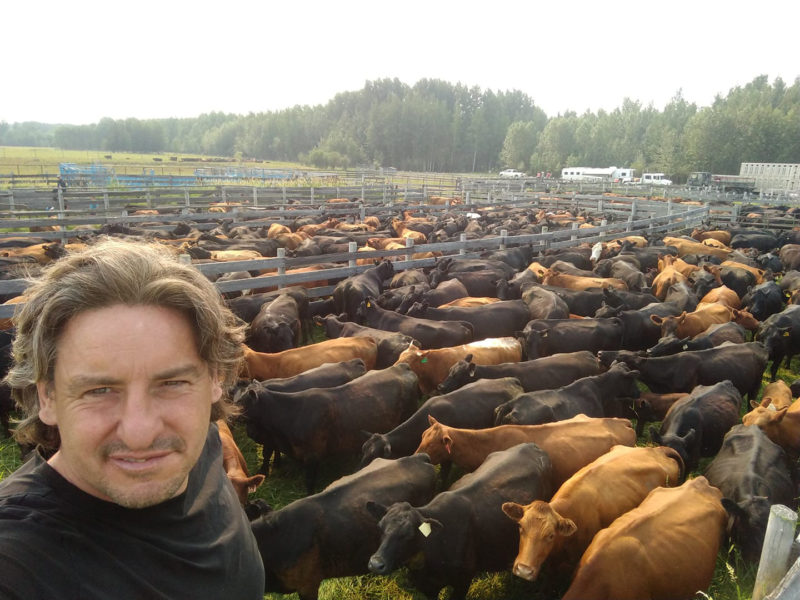HUDSON’S HOPE – BC farmers and ranchers continue to grapple with meat processing challenges in the province. Despite government efforts to amend licensing and financial supports, livestock and poultry producers struggle to get their meat products to market.
The issue is particularly acute in remote areas of the province. While many can have small-scale plants, larger facilities are more challenging despite the proliferation of small-scale producers.
This is where a $50,000 grant to Christoph Weder of Venator Ranches Ltd. in Hudson’s Hope by the BC Hydro Peace Agricultural Compensation Fund is set to make a difference.
Weder is launching a slaughter, cut and wrap facility on his operation to increase the harvest of beef and bison in the Peace region.
Announced in December, the funding will help finance the construction of a provincially licensed processing facility. The project is one of 19 projects funded during the latest round of awards.
“We will basically be 90% complete by April and hope to have our licence in place by mid-summer and start slaughtering by September,” says Weder.
His goal is to process 30 animals a week, equating to 1,500 animals a year. “I have three full-time staff that we will involve in the slaughtering side of things. We’ll only slaughter one day a week and process four days a week,” Weder says.
The new facility will serve cattle and bison producers from Fort St. John, Chetwynd, Hudson’s Hope and Peace River Valley, but the plant will also have an immediate impact on the viability of Weder’s business.
“I ran a meat company called Heritage Angus Beef for 10 years and sold it, so this is not new to me, how to market meat. There’s a great opportunity in BC with five million consumers and not a whole lot of processing on the beef side of things,” says Weder.
There are 22 provincial plants licensed for cattle but they handled just 22,584 animals last year or about 5% of the BC herd. Other initiatives, like the new BC Beef Producers Inc. plant in Westwold, have yet to become operational, while others have stalled due to challenges securing labour.
Weder has relied to date on the two provincially licensed red meat plants in the Peace River Regional District, Lawrence Meat Packing in Dawson Creek and South Peace Colony Meats in Farmington, but accessing them requires driving at least two and half hours one way – a significant amount of time and expense.
With strong demand for local meat, building his own plant is a move that makes sense.
“We’re doing really well with direct sales,” says Weder. “We wouldn’t be able to expand unless we built this plant because there are only two other plants in Peace Country that can custom process our stuff. [Both] of them are at full capacity and there’s no way we can grow our business based on using their facilities.”
The completion of Weder’s abattoir will “improve the economic bottom line of beef and bison producers through increased farm gate sales,” Northern Development Initiative Trust said in a statement announcing the grants.
“This funding for Venator Ranches’ slaughter, cut and wrap facility will provide extensive benefits to cattle and bison producers in the area,” says Northern Development’s CEO Joel McKay.
Also funded through Northern Development and BC Hydro is the new Agricultural Impact and Opportunities Initiative.
“This is a proposal-based initiative that provides grant funding for large-scale agriculture projects that will benefit the agriculture and agri-foods economy in the Peace Region. The deadline for applying to the AIOI is February 11,” says McKay.
To further expand access to custom harvesting for small producers, the Small-Scale Meat Producers Association plans to build an on-farm red meat abattoir in Rose Prairie to process beef, pork and sheep. As of September 2021, about $130,000 had been invested in the project.
SSMPA will continue to work on securing funding from the Northern Development Initiative Trust for the facility. It applied for funding during the latest intake for the BC Hydro Peace Agricultural Compensation Fund but was not successful.


 Farmers step up in emergency operations
Farmers step up in emergency operations